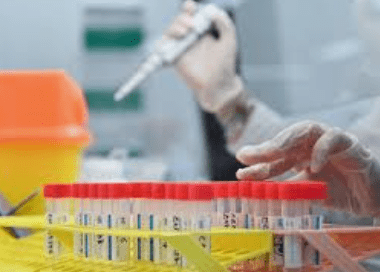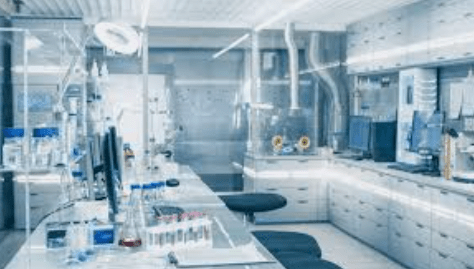By Andy Ford, Unite NHS rep
The news that the private Covid testing lab in Wolverhampton, Immensa, has been exposed for a giant failure in Covid PCR testing will have come as no surprise to Unite’s 20,000 biomedical scientist members. The private lab issued 43,000 false negative tests. In one city alone, Sheffield, they reported just four positive tests out of 2,400 when the national positive rate for PCR tests was 5%, equivalent to 120 of the tested batch.
Biomedical scientists work in NHS laboratories carrying out blood and tissue tests. Four fifths of all hospital patients have laboratory tests of one sort or other during their treatment. NHS laboratories work under the strict regulatory framework of UKAS (UK Accreditation Service) which checks governance, standards of practice and training regimes, allowing them to achieve international quality standards.
Immensa does not work under UKAS regulation, although in a bizarre twist, the leading government scientific advisor, Jenny Harries OBE, initially claimed it did. It’s even here on the fake news checker website, Full Fact!

£90 to stay on the register
Biomedical Scientists also work individually under state regulation, for which we pay £90 every year to remain on the register. Every year 5% of registrants have to prove their fitness to practice. A registered biomedical scientist has a duty to refuse management instructions which contravene good laboratory practice and have a duty to report concerns. The Immensa lab, like the other private labs set up under Tories’ Test and Trace scam, do not have to employ registered biomedical scientists, and seem to take anyone who applies under the supervision of a very few qualified scientists.
According to a Panorama documentary last summer, most of the workforce in another private lab were young graduates in a variety of scientific or numerate subjects, whose only experience of laboratory work might have been limited to a few university practicals. The documentary revealed a picture horrifying to any biomedical scientist, of carelessness and failures in the basics, like robust identification of each sample to a specific patient.
The Independent newspaper also found a whistle-blower from Wolverhampton, who described a similar picture at Immensa – poor training, young staff straight out of university, insufficient checks on testing machines, variable lab temperatures with air-con running off an extension socket and an emphasis on throughput but not on quality.
“People shouldn’t be handling infectious material in this type of environment”, saidDr Mark Collery, a microbiologist, “It’s very unsafe. The sector has become like the Wild West. No one is taking responsibility for these types of errors. How has it taken this long to spot an issue at the Wolverhampton lab? It’s beyond belief what’s going on”
Control tests on every batch
In an NHS lab, the equipment has to be maintained and records kept. Assays are checked every day before work begins and with control tests on every batch of tests. After the results have come out, the control values are checked on Quality Control charts and Quality Assurance software to spot trends. The worst that can happen is that a day’s work has to be repeated.
The only way they could have produced so many false results at Immensa would be to just leave the machines churning out results and just taking them and sending them out, without doing any of the daily and weekly checks or any trend analysis. There is a saying in laboratory science – “The one thing worse than no result is the wrong result” – and this is exactly what has happened at Immensa.
It was so bad that even a group of volunteers in Gloucestershire spotted something as being very wrong. They found that people who were ill, with multiple positive lateral flow tests were receiving negative PCR tests.
“On 18 September,” one reported, “I circulated a weekly summary of local data (as I’ve been doing throughout the pandemic) and noticed a steep and sudden drop in the number of people testing positive throughout Gloucestershire. Nearly overnight, we had plummeted from slightly above the national average to apparently having the lowest rates in the country”

By 30th September they were so concerned that they contacted the Department of Health wondering whether “a problem at a testing lab might be involved”. Answer came there none.
Suspending private lab in Wolverhampton
Then on 15th October, the Department issued a press release, saying that they were suspending the private lab in Wolverhampton. But in the meantime people in Gloucestershire had put themselves and others at risk by going to work, school or visiting relatives, believing they definitely did not have Covid, maybe just the “cold from hell”. “I felt completely betrayed” one said, after the whole family received negative PCR tests following infection of one of their children at school.
What a situation! Not only does the private lab miss a huge and obvious error, but the officials at the UK Health Security Agency, and the Test and Trace service missed it all as well. It was left to a group of volunteers, not even paid, and not scientifically qualified, to notice that something was very, very wrong.
£37bn spent on ‘test and trace’ – most on laboratory work
Immensa was only set up in May 2020, by a management consultant, not a scientist, and has since had the benefit of £170 million in government contracts for Covid testing. Of the £37 billion spent on Test and Trace, an expert on Radio 4 estimated that 80% has been spent on laboratory testing, which is equal to around £30 billion. If that money had been spent on expanding and upgrading the pre-existing network of around 200 NHS labs, each one could have had around £150 million, an astonishing figure for an NHS lab.
Equally, if the 20% spent on tracing, around £7 billion, equal to £100 per man, woman and child in the UK, had been given to local authorities for community-based contact tracing, a city such as Liverpool would have received £50 million. Gloucestershire could have had £64 million to set up a proper community tracing service. Instead, the money has mainly found its way to companies like Immensa, Deloitte, G4S and Serco and the results are all too plain to see. Contrast the ongoing fiasco of Test and Trace, which is basically the private sector with an NHS logo, with the steady success of the vaccine roll-out, delivered in house by the ‘old style’ NHS.
We must defend our publicly-owned NHS from the private sector who are looting it year in and year out. Despite the best efforts of the Tories (and Blair’s New Labour) the NHS is just about surviving as a public service run for need and free at the point of use. But the NHS must be defended at all costs and all of its functions and services brought back in house.



